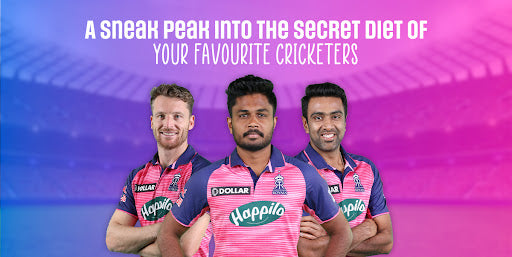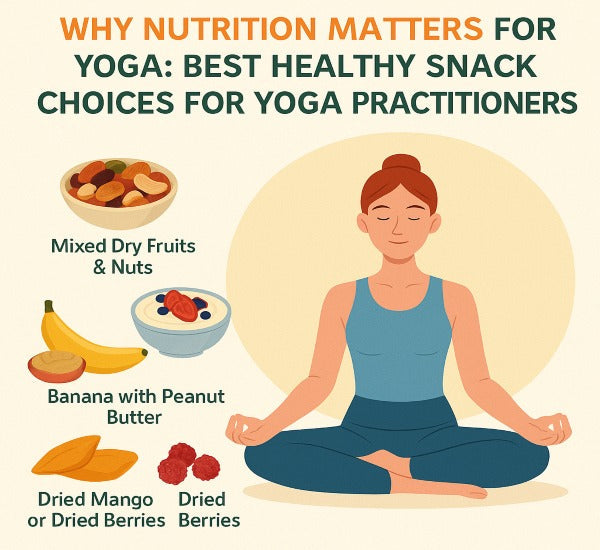
Wickets fell like dew drops as the opening order succumbed to the pacey deliveries of the Punjab bowlers. When a rocky start to an unimaginable chase posed an imminent defeat for the Rajasthan squad, their debutant captain Sanju Samson exhibited nerves of steel and superhuman athleticism to knock up a 119 in just 63 balls.
Cricket matches can be really exhaustive not just on the body but on the mind as well. Staying calm despite spending energy for hours together is only possible when there is harmony between the body and mind. This can be achieved through proper training and an efficiently designed diet for cricketers.
People have often wondered what diet helps cricketers stay in shape and perform such heroic feats on the field. If you are looking for the same answer, read on to find out.
What Exactly Does a Diet For Cricketers Mean?
A diet chart for cricketers, as the name suggests is a special nutrition plan that ensures sufficient nutrient intake at specific times before, during, and after a match. This helps a player to accumulate energy stores that can be spent during the match and then recuperate the muscle fibers afterward.
Let us dive deeper into what this special diet chart for cricketers incorporates.
Nutrition for Athletes: The Ingredients For Success

Food for cricketers is decided based on the role that they play in the team and also the geology of the game location.
For instance, if the game is being played in a humid environment, the diet for cricketers would comprise a larger fluid content to prevent dehydration. On the other hand, if the game is being played in a cold location, their diet would be rich in potassium and fluids to avoid cramps.
However, despite the aforementioned criteria, food for cricketers mostly comprises a common nutrient-rich base, which is provided by whole grains, cereals, pulses, dairy products, and lean protein sources like chicken and meat.
In addition to this basic diet, cricketers also consume snacks like fruits, protein bars, or yogurt in between sessions or during lunch breaks in order to replenish the expended energy.
These snacks consumed in addition to the basic diet for cricketers can be monitored based on the requirement of individual players. For instance, some might want to increase endurance or shed weight or increase strength.
Thus, a cricketer’s diet can differ from player to player depending on the requirement.
Clocking Your Meals: When to Eat What
As mentioned above, snack intake in addition to the established diet chart for cricketers is essential to replenish energy in between, after and even prior to matches.
But, before we wander off into the timing of meals, let us go through an essential aspect of all sports activities- HYDRATION.
What do Cricketers Drink in Between Matches?
Have you ever wondered what cricketers drink in between matches on the boundary line or during training sessions and drink breaks? Let’s find out:
1. Energy Drink for cricketers:
While most people believe that cricketers drink energy boosters like RedBull for instantaneous explosive energy, that’s not the case in reality.
Such drinks and beverages are high in caffeine and sugar, which might provide the momentary boost required, but almost often result in dehydration (contrary to the purpose of their consumption).
Energy drink for cricketers mostly include isotonic sports supplements that contain a balanced proportion of salt and sugar to replenish the lost fluids as quickly as possible.
2. Beverages like Tea, Coffee and Juices:
Beverages like tea and coffee, although good for revitalising minds, is not actively suggested as a quick fluid intake between fall of wickets. That’s because such beverages do little to replenish the fluids lost in sweat and might sometimes provoke the onset of dehydration.
However, a cup of tea in between drinks breaks won’t cause much harm to a player.
Having said that, fresh fruit juices, squashes and glucose can help prevent dehydration and also provide good nutrition for athletes
3. Water:
While sports supplements are commonly used by cricketers in between breaks, water is always the best way of revitalizing your fluids. Add a pinch of salt or balance it with some glucose and you have a great chance of avoiding dehydration.
Ideally, a cricketer needs to consume at least 2-3 litres of water, especially during a test match, to keep dehydration at bay.
Now that we understand the hydration options, let us get back to the solid food diet for cricketers and how they clock their eating habits.
Pre Game Nutrition For Athletes: Prepping For an Exhaustive Venture
Prepping athletes for any major event is a long-term process. It involves regular schedules for eating and training to help the body get habituated to vigorous activities that follow.
1. Week-Long Prep Diet for Cricketers:
Your body works based on muscle memory amongst many other important things. Thus, you should watch what you eat, at least a week prior to the big event.
-
Ensure that you eat something healthy in regulated quantities every 2-3 hours but ensure that you don’t overeat. Snacking healthy in between meals should do the trick!
-
While you can consume chicken, lean meat, seafood and eggs in your diet chart, vegan cricketers can replace these with paneer, soy, pulses, tofu or other protein supplements if approved by your dietician.
-
Avoid carbs and fats till the match day and focus more on adding protein-rich components instead.
- Keep your hands off any calorie-rich energy drink for cricketers and stick to fresh fruit juices or squashes.
2. Diet Chart For Cricketers on Game Day:
A major challenge cricketers face is not knowing what kind of activity they will perform until 20 minutes before a match. So it is better to stay prepared for both, sitting on the bench for your batting turn as well as running on the field.
-
Avoid fat or oil in your morning breakfast or you might end up lethargic on the field. You can add protein-rich sources of carbohydrates like omelettes(with vegetables), chicken salads and fresh fruit juices.
Apart from fresh fruits, dried fruits can also be consumed in monitored quantities as they are a great source of carbohydrates in symphony with loads of micronutrients like potassium, manganese, iron and vitamins.
Although you might want to regulate the intake of dried fruits before a match as they are also rich in fibres and you don’t want to enter a game with a heavy stomach.
Vegan cricketers can opt for a vegetable salad with soy chunks and paneer cubes for supplementing the protein requirements.
- Consume a balanced meal at least 3-4 hours before the match so that you get plenty of time to digest it.
- Other options for your morning meal on match day include low-fat milk, sweet potatoes, vegetable slides, toast, oatmeal, fruits, dry fruits like cashews, macadamias, prunes and almonds.
Diet for Cricketers During a Game
 Cricketers should eat as many carbohydrates as possible be it in form of sports drinks, or wraps and salads with lean protein, sandwiches, toast, fruits, and also, a cup of tea or coffee (in regulated amounts as excess consumption might lead to an upset stomach).
Cricketers should eat as many carbohydrates as possible be it in form of sports drinks, or wraps and salads with lean protein, sandwiches, toast, fruits, and also, a cup of tea or coffee (in regulated amounts as excess consumption might lead to an upset stomach).
Another habit that you might have noticed on your TV screens is cricketers chewing gum on the field. Chewing gums are a good source of sugar and thus, provide them with that additional ounce of energy required to pull through the game.
While cricketers chewing gum might replenish some of their lost energy, they are also a means of calming down fiddling nerves by acting as a stress buster at times.
Post Game Diet for Cricketers: Replenish What You Lost
Post game food for cricketers generally includes higher carbohydrates and proteins which are best provided by fruits, lean meat, chicken, soy chunks, paneer, yoghurt, vegetables, and different types of nuts like cashew, almonds, pistachio, etc.
Check out the specific nutritional values of different nuts in order to decide which nuts benefit your health and how you should monitor their consumption.
Energy drink for cricketers and electrolytes are some good ways to rehydrate the body. Ensure that you do not overeat especially if you are in a test match or a league game.
Having understood what you need to eat and what not to, here’s a special section that will take you through the diets of some superstars from the India Cricket World.
A Glimpse Into The Diet Plans of Some Cricket Superstars
Have a look at the diet chart followed by 2 of the most popular cricketers in India:
MS Dhoni’s Diet Plan: A Cool Mind in an Energetic Body
The MS Dhoni diet chart includes a balance between protein shakes, dairy products, and home-cooked low-fat food.
-
Protein drinks are his workout companions be it during his endeavours at the gym or when he alternates them with a game of football or badminton.
-
Dairy products are the favourite part of MS Dhoni’s diet. Milk and milk products help him replenish his stores of calcium, vitamin and protein.
-
While fruit juices are a big yes for him, it is freshly made fruit juices that he prefers over the ones that come sealed from shops. He avoids carbonated drinks as he is very strict when it comes to monitoring his carbohydrate intake.
- He loves home-cooked food that includes Chapati, daal, salads, chicken, porridge, mixed vegetables, and bowls of fresh fruits.
Virat Kohli’s Diet Chart: The Secret to His Explosive Strength
The fiery former Captain Virat Kohli is a stickler for rules when it comes to avoiding too many carbohydrates or fat in his food.
-
A side of eggs along with his morning breakfast is his go-to meal for a fresh and healthy start to his day.
-
He prefers loading his meals with veggies and sources of lean protein like chicken and salmon.
-
Virat Kohli’s diet chart often includes mushroom dishes, gluten-free bread, soups, oatmeal, dosa, soy and spinach.
- He also prefers protein shakes as his workout companions, while fresh fruits and dry fruits always go a long way to supplement the remaining nutrient demands.
Food plays a crucial role in determining the performance of an athlete. What you eat and when you eat it needs to be properly monitored to bring out the best in you.
While nutrient-loaded meals are a good start, you can also binge on some healthy snacks for weight loss that add protein to your diet without loading you on calories.
This blog has touched every major component in the diet for cricketers which will bolster your training regiment as well as your health, fitness and performance on the field.



Leave a comment
This site is protected by hCaptcha and the hCaptcha Privacy Policy and Terms of Service apply.